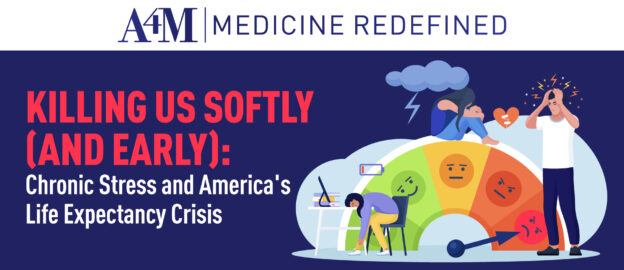Life expectancy is a key indicator of a nation’s health and well-being. However, despite having similar resources to other developed countries, life expectancy has seen a concerning decline in America. Most recent data from the Centers for Disease Control and Prevention (CDC) reveals U.S. life expectancy has declined to 76.4 years, the shortest in nearly two decades.
When compared with other high-income countries, the United States falls short. Premature deaths have reached historically high rates, and the U.S. has among the highest maternal and infant mortality rates among its counterparts.
Physicians and public health experts have identified chronic stress as not just a significant contributing factor to this life expectancy crisis but also a societal epidemic.



